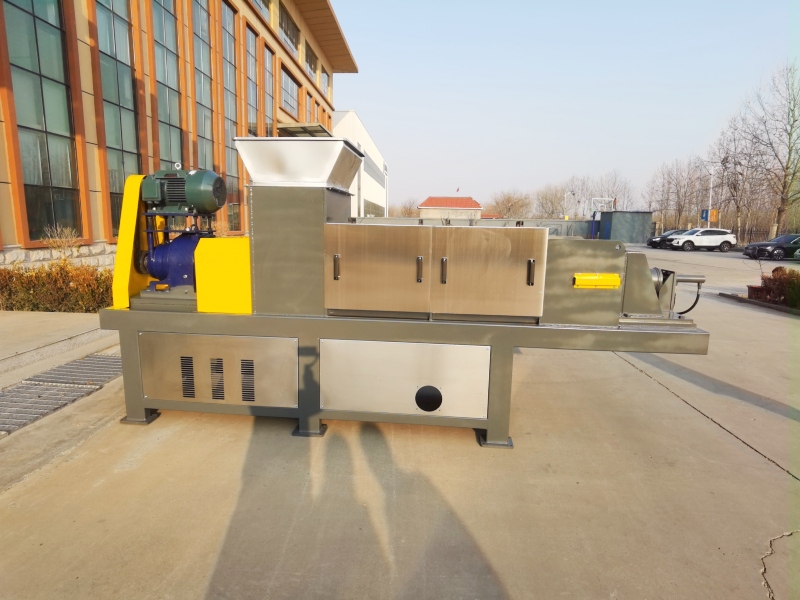
In recent years, the global focus on sustainable practices and environmental conservation has led to the development of innovative technologies aimed at reducing waste and promoting eco-friendly solutions. One such advancement is the large-scale waste vegetable dehydrator machine, which plays a crucial role in addressing the challenges associated with organic waste disposal. This article explores the features, benefits, and significance of these machines in the context of environmental sustainability.
Features of Large-Scale Waste Vegetable Dehydrator Machine:
High Capacity: These machines are designed with large processing capacities, allowing them to handle significant volumes of waste vegetables efficiently.
Energy Efficiency: Advanced dehydrator machines incorporate energy-efficient mechanisms, reducing overall energy consumption during the dehydration process.
Compact Design: Modern dehydrators come in compact designs, optimizing space utilization and enabling installation in various settings, including industrial facilities and agricultural centers.
Automated Operation: These machines are equipped with user-friendly interfaces and automation features, ensuring seamless operation and minimal manual intervention.
Low Noise Levels: Noise reduction technologies are integrated into the machine design, minimizing disturbances in the surrounding environment during operation.
Benefits of Large-Scale Waste Vegetable Dehydrator Machine:
Waste Reduction: By dehydrating large quantities of waste vegetables, these machines significantly reduce the volume of organic waste, mitigating the burden on landfills and waste management systems.
Resource Conservation: Dehydrated vegetable waste can be repurposed as organic fertilizers, contributing to sustainable agriculture and reducing the reliance on chemical fertilizers.
Green Energy Production: Some advanced dehydrator machines utilize waste heat and bioenergy generated during the process to produce green energy, promoting renewable energy initiatives.
Cost Savings: Businesses and agricultural enterprises benefit from reduced waste disposal costs, making the operation more economically viable in the long run.
Environmental Preservation: By minimizing organic waste and promoting eco-friendly practices, large-scale waste vegetable dehydrator machines play a vital role in preserving the environment and supporting biodiversity.
Significance in Environmental Sustainability:
The implementation of large-scale waste vegetable dehydrator machines aligns with global sustainability goals by addressing multiple environmental challenges. These machines contribute to the reduction of greenhouse gas emissions, conserve natural resources, and promote a circular economy by repurposing organic waste into valuable resources.
Conclusion:
Large-scale waste vegetable dehydrator machines represent a significant stride toward a more sustainable future. By embracing these innovative technologies, industries, agricultural sectors, and communities can actively participate in environmental conservation efforts. As the demand for eco-friendly solutions continues to rise, the widespread adoption of these machines holds the key to a cleaner, greener planet for generations to come.




If your company wants to establish a business relationship with us, please briefly describe the cooperation intention and send an email to:chuantaiscrewpress@gmail.com























































































![[list:title]](/static/upload/image/20240528/1716877114510915.jpg)